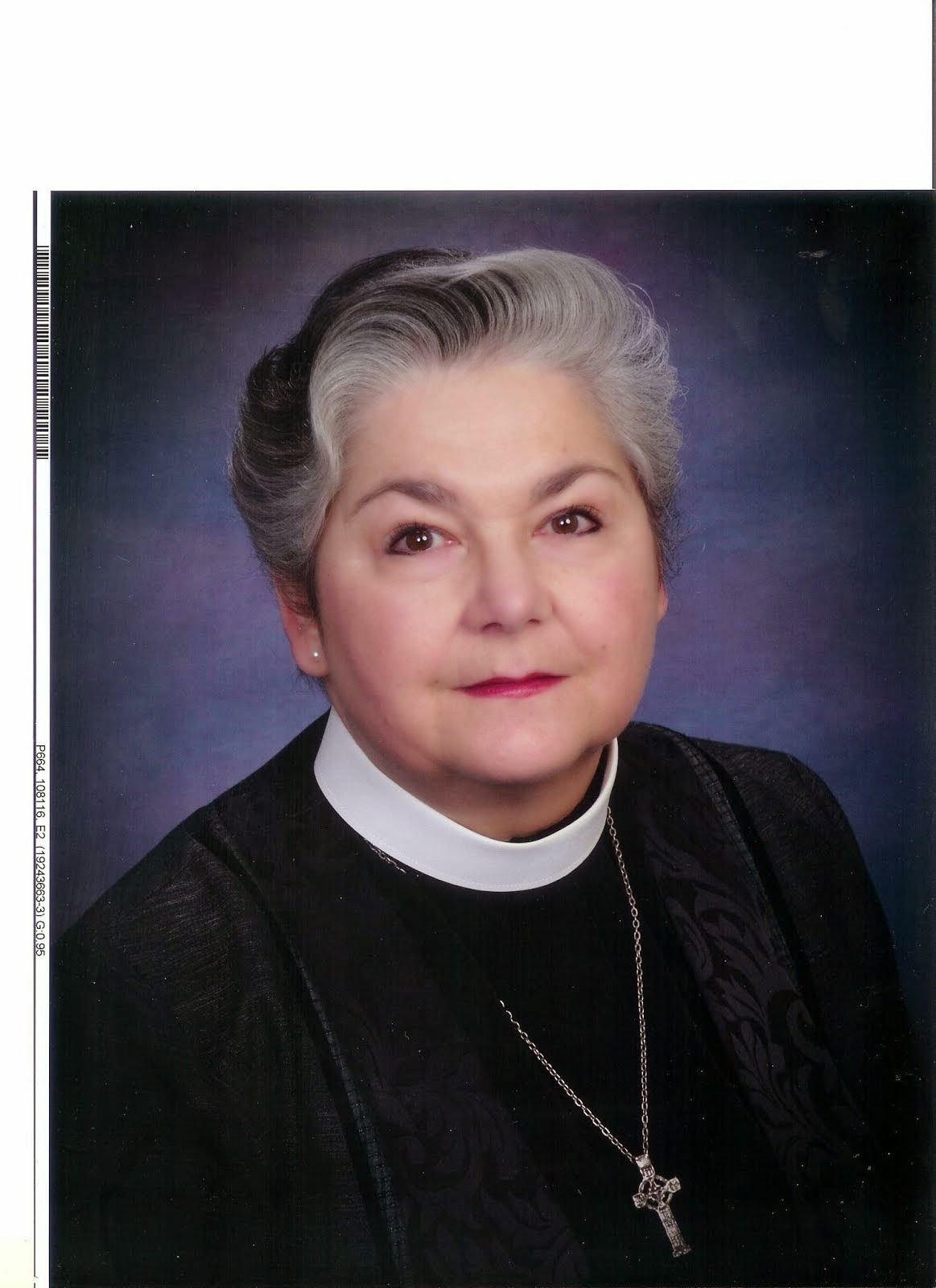Matthew 4:12-23
I had dinner with my friend Karen the other day. She’s an impressive person, a graduate of UVA and Harvard Law School, a litigator who recently left one of the fanciest law firms on K Street. I was curious to hear what had brought her to abandon her partnership and the concomitant income.
“Well, Mary,” she said, “I feel like God’s calling me to do something, and I’m just not sure what it is. I’m praying and thinking and taking classes, but I’m just not hearing yet, you know?” Karen is one of those folks who can power her way through any problem, any question, and it was clear to me that she was frustrated that her usual techniques weren’t getting her anywhere. She was struggling to figure it out.
Some of us are slow to figure things out. It’s not a slam on our intelligence, it just takes us a while. We don’t get the direct call from God to drop the nets and start fishing for people. We may get the more subtle call, and because we’re used to thinking of the world in a particular way, and because we’re more than a little stubborn, it takes us a while to figure it out. It certainly sounds like that’s what is going on in the church of Corinth, inspiring that letter from the Corinthian church’s founder, the apostle Paul. Paul knows all too well how people can misunderstand the message, and his letter is essentially one big “What were you thinking?” By the way, I love that he mentions that he’s heard from Chloe’s people about this problem. Chloe, a woman, is the leader of one of the house churches in Corinth. Some folks like to think that Paul is anti-woman…this passage says it’s not as simple as all that. But I digress…back in Corinth, people are trying to align themselves based on who baptized them. They’ve heard a call, and they’ve responded. They’ve been baptized, a risky business in those days. But then they get confused about what they’re supposed to do next. They think it matters who baptized them. They’re dividing up into armed camps – Apollos’ people, Cephas’ people, Paul’s people, as if there really was a difference, since they are all supposed to be followers of Christ. They get confused as they try to interpret what God is calling them to do. They get halfway there, and then get off track.
It’s a sharp contrast between that scene and what happens in the Gospel. Jesus walks up to Peter and Andrew and the Zebedee boys by the Sea of Galilee, tells them to drop their nets and follow Him, and they do. Simple as that. “C’mon. Drop the nets. Come with me. I’ve got a job for you.” And they go, not even asking what the job is, and he starts to preach and teach and heal, and they are forever transformed.
For most of us, our call is a little closer to Corinth than Galilee. It’s rare to hear God whispering in our ear saying “C’mon. Drop the nets. Come with me. I’ve got a job for you.” More often, we start off alright, but then it’s all about trying to figure out the next step, getting confused, doing something silly, and hearing “what were you thinking?” More often, it’s like my friend Karen, struggling with the question. We start off alright, but then we hit a wall. We’re doing all the things we usually do to solve a problem and none of it is working.
Some people do get the gift of God whispering clearly into their ear. But it certainly didn’t work that way for me. I was a Corinthian all the way. I was baptized as an infant. But for a brief flirtation with mission work when I was a teenager, I was a pretty conventional Christian, going to church, doing the kinds of work in the church that was expected of me, maybe a little bit more here and there. I was living my conventional life, working my way up the professional ladder just as my friend Karen did, marrying, having children, raising them, dealing with the struggles of life. But somewhere along the way, like the tune you can’t get out of your head, there was something happening inside me. God was calling. I chose not to listen, or to understand the tune, or to respond to it. I chose to ignore it, because it was a frightening song. I ignored it because it was safer, easier to ignore it. I knew it was in there, but I didn’t want to face it. My life, after many ups and downs, was happy, settled, comfortable. But now there was a tug, an inexorable pull, to do something entirely different, and it terrified me. What would this thing mean to my husband, my children, my life? It would be impossible. It would mean too many changes. So I ignored it. And the pull became stronger. I might turn away, but God would not. “Drop the nets. Come follow me. I have a job for you.” Slowly I began to understand that this wasn’t going away, and I started to entertain the idea. For a time, I couldn’t say the words aloud “I believe I am being called to the priesthood.” I had a conversation with my priest where I asked about it, without saying that phrase. He was a wise man, and he knew what I was asking. He respected my fears, and gave me wise guidance. “Pray, and listen for God’s voice. Be patient. You’ll figure it out.” I got to the point where I could say the words, but not without bursting into tears. It was too big, and I was too unworthy. My spiritual director reminded me that God picked all sorts of unlikely folks to do his work – just look at Christ’s genealogy – so what made me think I was any worse than they were? And didn’t I believe that the Spirit could equip me? God equips the chosen, He doesn’t choose the equipped. All those confused people in Corinth – they were going through the same thing – what am I supposed to do? How is this supposed to work? What is God calling me to do? The questions were the same.
I didn’t have Paul to send me a letter, but I had some wise spiritual guides who talked me through what I was struggling with, who prayed and laughed and challenged and sat with me in silence. It was the Art of Figuring It Out, and I was a beginner at it.
The Art of Figuring It Out may start with hearing the first voice, the first words of love, of being one with God in the rite of Baptism. Or it may be a hearing of a call to start working, without much detail about what that work might be. It may be sitting in the pew and feeling drawn to some kind of work, without knowing quite why. But it may be more opaque than that.
In that case, The Art of Figuring It Out may start in silence – listening for God’s voice. Prayer is not always about talking – much of the time, it’s about listening. Listening is an art, a learned art. Our society militates against silence, against listening. We’re supposed to find our voice, use our voice, make ourselves heard. We’re not supposed to hide our light under a bushel basket, Silence is deafening. Silence = death. Silence is something to be broken. And yet silence may be our best chance to figure out what God wants us to do.
The Art of Figuring It Out involves asking for help. It seems counterintuitive that we should ask for help – aren’t we supposed to go into ourselves to find these answers? Not necessarily – in Shakespeare’s Julius Caesar, a character says “For the eye sees not itself, but by reflection, by some other thing.” We have to ask for help, for others to walk on this road with us, to be both mirror and challenger.
The Art of Figuring It Out involves patience. Rainer Maria Rilke, in his Letters to a Young Poet, says it: ...I would like to beg you dear Sir, as well as I can, to have patience with everything unresolved in your heart and to try to love the questions themselves as if they were locked rooms or books written in a very foreign language. Don't search for the answers, which could not be given to you now, because you would not be able to live them. And the point is to live everything. Live the questions now. Perhaps then, someday far in the future, you will gradually, without even noticing it, live your way into the answer. Can we love the questions themselves? Can we be patient enough to live into the answer?
The Art of Figuring It Out recognizes that we poor human beings, impatient as we are, don’t necessarily understand that these things happen in God’s time, which is entirely different than our time.
And the Art of Figuring It Out is not about us – it is about God, and God’s work, and what we can do to contribute to God’s Kingdom. Paul says it best: “For Christ did not send me to baptize but to proclaim the gospel… For the message about the cross is foolishness to those who are perishing, but to us who are being saved it is the power of God.”
There is work waiting for us. The Lord’s graciousness is so very vast that he includes us in the process of making His kingdom. We are reborn when we hear His voice, asking us to drop the nets, come follow Him. We have a job to do.
Amen.
Subscribe to:
Post Comments (Atom)







No comments:
Post a Comment